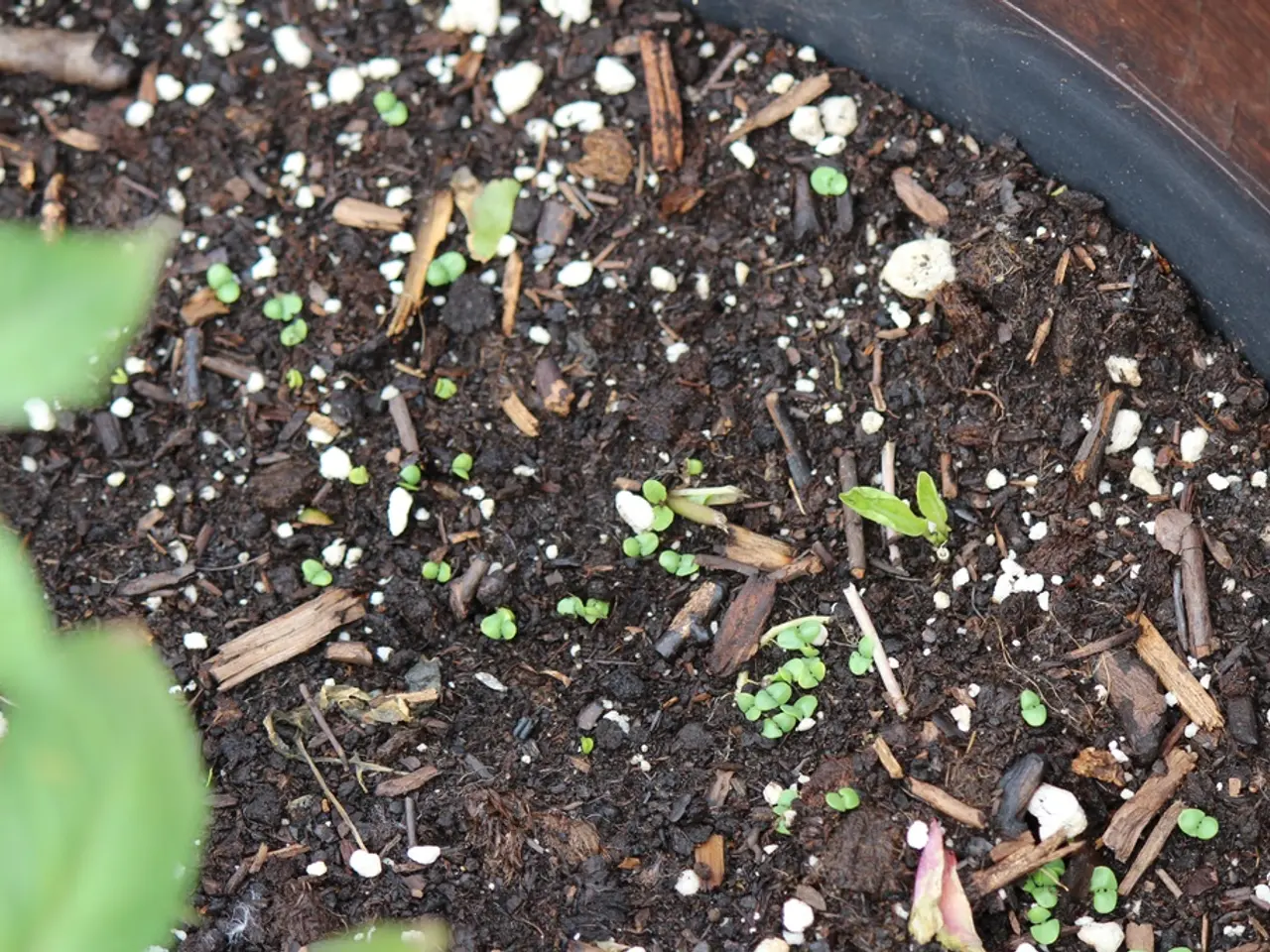Benefits and Drawbacks of Organic and Synthetic Fertilizers
In the world of gardening, the choice between organic and chemical fertilizers can be a complex one. Both options have their pros and cons, and understanding these differences can help you make an informed decision based on your gardening goals and values.
Organic fertilizers, derived from natural sources like plant and animal materials and powdered minerals, offer several advantages. They improve soil quality and structure, providing nutrients slowly for long-term fertility. This gradual release helps prevent nutrient leaching and supports a healthier soil ecosystem. Organic fertilizers are also biodegradable, environmentally friendly, sustainable, and renewable.
However, organic fertilizers generally contain lower concentrations of key nutrients like nitrogen, phosphorus, and potassium (N-P-K) compared to chemical fertilizers. This means that larger quantities are often needed to meet crop nutrient demands. Their slower nutrient release can also be a disadvantage if plants need immediate nourishment. Additionally, the nutrient content can be more variable and less predictable than synthetic fertilizers.
On the other hand, chemical (inorganic/synthetic) fertilizers offer high nutrient concentration and rapid nutrient availability. This can support quick crop growth and address immediate nutrient deficiencies efficiently. However, their advantages come with potential drawbacks. Can degrade soil over time with excessive use, risk of nutrient leaching leading to water pollution, greater energy input for production, higher economic costs for farmers, and possible negative impacts on the soil microbiome and long-term soil health are some of the concerns associated with chemical fertilizers.
The comparison between organic and chemical fertilizers highlights their distinct characteristics. Organic fertilizers are biodegradable, environmentally friendly, sustainable, and renewable. They require more quantity but have a lower energy input for production and are often cheaper in the long run. Chemical fertilizers, on the other hand, are not eco-friendly due to their non-sustainable production, water pollution, and high energy consumption. They are more concentrated and require less quantity, but they can cause toxic buildup and alter the soil's pH permanently with long-term use.
In conclusion, the choice between organic and chemical fertilizers depends on your gardening objectives and values. If you prioritize sustainability, long-term soil health, and a slower, more gradual nutrient release, organic fertilizers may be the better choice. If you need quick results and are willing to accept the potential risks associated with chemical fertilizers, they may be more suitable for your needs. Regardless of your choice, it's essential to use fertilizers responsibly and consider the impact on your garden, the environment, and your wallet.
[1] Sustainable Agriculture Research and Education (SARE). (n.d.). Organic Fertilizers. Retrieved from https://www.sare.org/Learning-Center/Books/Organic-Fertilizers
[2] National Sustainable Agriculture Information Service (ATTRA). (n.d.). Organic Fertilizers. Retrieved from https://attra.ncat.org/attra-pub/organic-fertilizers
[3] United States Department of Agriculture (USDA). (n.d.). Organic Fertilizers. Retrieved from https://www.ams.usda.gov/services/organic/organic-standards/ingredients/fertilizers
[4] Environmental Protection Agency (EPA). (n.d.). Nutrient Management. Retrieved from https://www.epa.gov/nutrient-policy-data/nutrient-management
With the lifestyle of eco-conscious gardeners in mind, organic fertilizers, often chosen for their home-and-garden use, are derived from natural sources like plants, animals, minerals, and promote a healthier soil ecosystem. In contrast, synthetic or chemical fertilizers, while offering quick results, may pose potential risks to the long-term health of the garden and the environment, an attribute that doesn't align with the values of many home-and-garden enthusiasts engaged in gardening as a hobby or part of their lifestyle.




